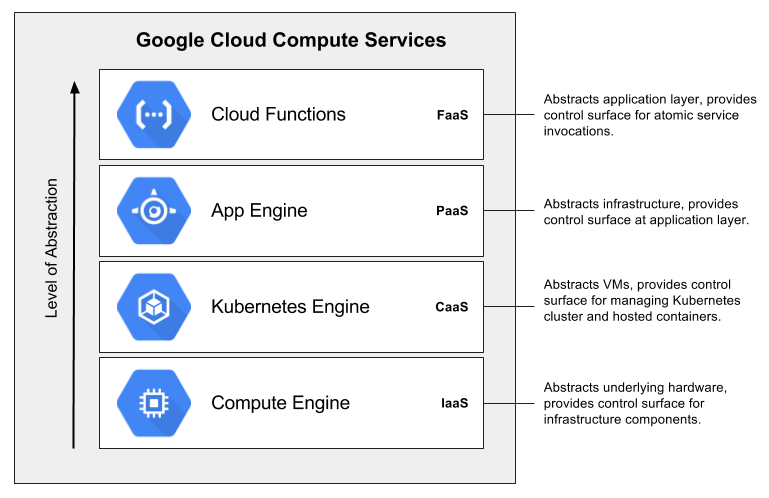
You need a server to host your website. It allows you to store your website on disk space as well as bandwidth. A good hosting provider will also offer customer support. Without customer support, your website is likely to crash and lose its visitors. Hosting is a major purchase. Customer support is essential. You can read on to learn more about what you should look out for in a host plan.
Web hosting is a storage space for your website
Web hosting lets you rent a web server and host your website. The space will hold all files that you have on your website. It will also store your website's DNS Server or other software. This space size will depend on what site you run and what content it contains. The more content on your website, you will need more space. A few web hosting packages offer up to 10GB in disk space, a free domain and 50 email account.
Web hosting requires a certain amount of disk space on the server, which you'll need to keep all of your website files. This disk space is different from bandwidth, which is the amount of data that visitors can access your site. Before you sign up for webhosting, it is important to verify how much space you will need.
It provides bandwidth
Bandwidth is a key factor in determining the success of a website. You can improve your visitors' experience and reduce bounce rates by having enough bandwidth. A good hosting plan includes a variety of bandwidth options, and each host has a plan that suits the needs of a specific type of website. For example, a small website will need a few GBs of bandwidth to start, and it may only need more bandwidth if traffic suddenly spikes.

Bandwidth measures the transfer speed between websites. Documents, emails, and videos all count as bandwidth. There are many hosting companies that offer different bandwidth plans. These range from daily, weekly and monthly. It is important to estimate how much data you will transfer each monthly in order for you to determine the needs of your website. You will be charged a higher monthly fee if you exceed the limit.
It offers disk space
Disk space can be described as a resource that is assigned to a hosting customer on a shared server. This space can be used for your website's content or email. The amount you are allowed to store your website depends on what site type you choose and how much content it contains. You can also scale your disk space. Hosting companies typically offer monthly plans with different amounts of disk space. You can change or upgrade your plan at any time.
One of the most crucial elements of any hosting plan is disk storage. Many hosting plans offer 20GB-100GB of disk space. However, dedicated servers can store up to 1TB. Bluehost lets you check how much disk space you have, and the bandwidth and files you are using.
It offers customer support
Ask the hosting provider about their customer support services before you buy. While it's nice to have a chat support team that is helpful and friendly to answer all your questions, you should also inquire about the technical expertise of the support staff. Some hosting providers have highly trained support staff. It is also important to find out how long it takes for the customer service team responds to your queries. If the response time is very slow, you may have to wait for a long time before you receive assistance.
Reseller hosting success is dependent on customer support. Happy clients are more likely to renew their agreements and will recommend your services. It is crucial to offer several channels for clients to reach support staff so that they can provide 5-star support. Good customer support systems will offer instant channels, ticket-based systems and self-help resources.

It provides scalability
Hosting that allows for scaling is one the best things to do for your website. Scalability refers simply to the ability of a provider or service to adjust to changing demands. It can refer either to software components or physical processes like cloud storage. You want a hosting provider that can grow as you do.
Scalability is vital for business users. It makes it possible to compete for customers of all sizes. Cloud computing offers flexibility, allowing businesses to increase and decrease computing resources depending on their budget. You can easily scale up or decrease the number of websites you have without paying more. This feature is particularly helpful for growing businesses because it can quickly transition to a dedicated physical or cloud-hosted server if needed.
FAQ
How do I create my own website?
It all depends on which type of website it is. Do you want to sell online products, start a blog, build a portfolio, or both?
A combination of HyperText Markup Language, Cascading Stil Sheets and HTML can create an essential website. While it's possible to create a simple website using HTML and CSS, most web developers recommend using a WYSIWYG editor such as Dreamweaver or Frontpage.
A freelance developer may be the best choice if you don't have any experience in designing websites. They can help you build a website customized to your needs.
Freelancers can charge a flat fee or an hourly rate. It all depends on how much work they do in a set timeframe.
Some companies charge between $50 and $100 per hour. Higher rates will be charged for larger projects.
You can also find jobs on many freelance websites. You can also search on those websites before you reach out to developers.
How To Make A Static Web Site
You have two options when creating your first static site:
-
A Content Management System (also known as WordPress): WordPress): You can download this software and install it on your computer. Then you can use it to create an essential website.
-
You will need to create a static HTML website. It's not hard to do if you already understand HTML.
It is worth hiring an expert if you want to build large websites.
Start by choosing option 2.
Can I build my website using HTML & CSS?
Yes, you can! It's possible! You need to have basic knowledge in web design and programming languages, such as HTML (Hyper Text Markup Language), CSS and Cascading Style sheets (Cascading CSS Sheets). These two languages make it possible to create websites accessible by all who have an internet connection.
Can I use a framework or template on my website?
Yes! Many people use pre-built templates or frameworks when creating a website. These templates contain all the code needed to display information on your page.
These templates are the most in-demand:
WordPress - The most popular CMS
Joomla - Joomla! - another open source CMS
Drupal – An enterprise-level solution used by large organizations
Expression Engine is a Yahoo CMS that allows you to create custom CMS sites.
Hundreds of templates are available for each platform, so finding the right one should be easy.
What is a "static website"?
A static website is where all content is stored on a server and accessed by visitors via web browsers.
The term "static" is used to refer to the absence of dynamic features like changing images, video, animations, etc.
This site was originally designed for intranets. However, it has been adopted by small businesses and individuals who need simple websites with no custom programming.
Because they are less maintenance-intensive, static sites have gained popularity. Static sites are easier to maintain and update than fully-featured websites with multiple components (such as blogs).
They load also faster than their dynamic counterparts. This makes them perfect for users who are using mobile devices or have slow Internet access.
A static website is more secure than its dynamic counterparts. There's nothing to hack into a static website. Hackers have only access to data stored in a database.
There are two main ways you can create a static web site.
-
Use a Content Management System (CMS).
-
Create a static HTML web site
Which one you choose depends on your requirements. If you're new to creating websites, I recommend using a CMS.
Why? It gives you full control of your website. With a CMS, you don't need to hire someone to help you set up your site. All you need to do is upload files to the web server.
Still, you can learn to code and create static websites. You will need to spend some time learning to program.
How much does it take to build a website.
The answer depends on what you are trying to achieve with your website. For instance, if you just want to post information about yourself or your business, you might be able to get away with free services such as Google Sites.
But if your goal is to attract visitors to a website, it's likely that you'll need to invest in something more robust.
The most popular solution is to use a Content Management System (like WordPress). These programs allow you to create a website without knowing anything about programming. The sites are hosted by third-party businesses, so there is no risk of your site being hacked.
Squarespace is another service that can be used to build websites. There are a number of plans available, with prices ranging from $5 per Month to $100 Per Month depending on the features you wish to add to your website.
How much do web developers make?
Working on a website yourself will likely earn you between $60 and $80 an hour. You can charge more if you're an independent contractor. An hourly rate of $150-200 could be possible.
Statistics
- It enables you to sell your music directly on your website and keep 100% of the profits. (wix.com)
- The average website user will read about 20% of the text on any given page, so it's crucial to entice them with an appropriate vibe. (websitebuilderexpert.com)
- It's estimated that in 2022, over 2.14 billion people will purchase goods and services online. (wix.com)
- When choosing your website color scheme, a general rule is to limit yourself to three shades: one primary color (60% of the mix), one secondary color (30%), and one accent color (10%). (wix.com)
- At this point, it's important to note that just because a web trend is current, it doesn't mean it's necessarily right for you.48% of people cite design as the most important factor of a website, (websitebuilderexpert.com)
External Links
How To
What is Website Hosting?
Website hosting describes where visitors go when they visit a site. There are two types:
-
Shared hosting – This is the most affordable option. Your website files reside in a server managed by another company. Customers visit your website and send their requests over the Internet to this server. The owner of the server then hands off the request to you.
-
Dedicated hosting is the most expensive option. Your website will reside on a single server. Your traffic is private because no other websites have shared space on this server.
Because it is less expensive than dedicated hosting, shared hosting is preferred by many businesses. With shared hosting, the company that owns the server provides the resources needed to run your website.
There are pros and disadvantages to each option. Here are some key differences between them.
Sharing Hosting Pros
-
Lower Cost
-
Easy To Set Up
-
Frequent updates
-
It can Be Found On Many Web Hosting Companies
Shared hosting is often as cheap as $10 per month. However, this price typically includes bandwidth. Bandwidth refers to the amount of data you can transfer across the Internet. Even if only you upload photos to your blog or website, high-volume data transfers may incur additional charges.
Once you start, you'll quickly realize why you were paying so much for your previous host. Most shared hosts have very poor customer support. While they may occasionally assist you in setting up your site and other tasks, after that you are all on your own.
Providers that offer 24-hour customer support are worth looking into. They'll take care of any issues that come up while you sleep.
Hosting dedicated:
-
More Expensive
-
Fewer Common
-
Requires Special Skills
With dedicated hosting, everything you need for your website is at your fingertips. You won't worry about how much bandwidth you are using or how much RAM (random Access Memory) you have.
This means that you'll spend a bit more upfront. However, once your business goes online, you'll discover that you don’t need as much technical support. You will become an expert in managing your servers.
Which is better for my business?
The answer will depend on the type and purpose of your website. Shared hosting is best for those who only need to sell products. It's simple to set it up and keep it updated. It's easy to set up and maintain, as you share a server with other sites. You will likely be updated frequently.
If you want to create a community around a brand, dedicated hosting may be the best choice. Instead of worrying about traffic, you can concentrate on building your brand.
Bluehost.com is a web host that offers both. Bluehost.com offers unlimited monthly data transfers, 24/7 customer support, domain registrations free of charge, and a 30-day guarantee for your money back.